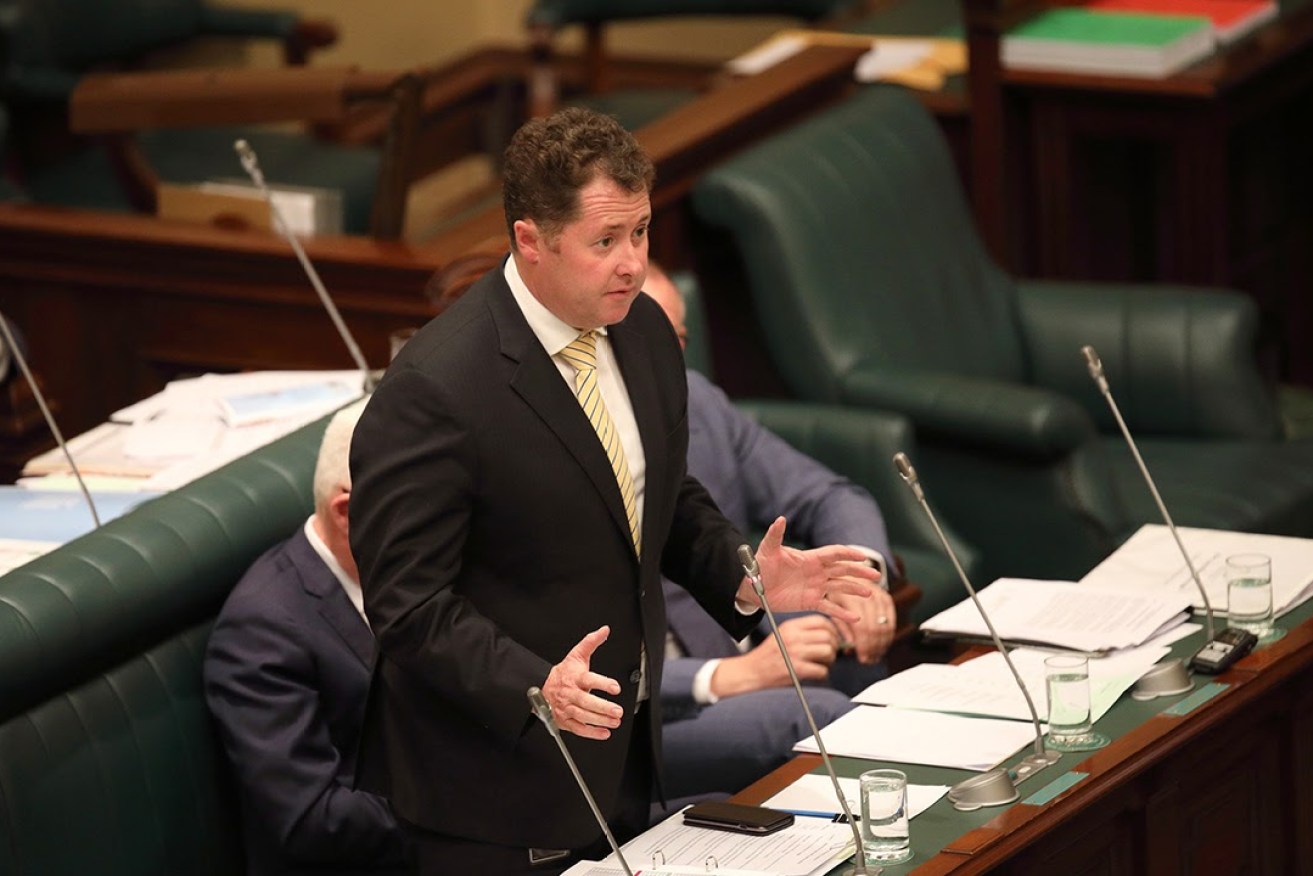Snelling on Oakden: There’s nothing we could have done differently
Health Minister Jack Snelling says there is nothing he or the Government could have done differently to prevent the abuse of patients at the Oakden older persons’ mental health facility while he was the responsible minister from 2014.


Jack Snelling says there is nothing he or the Government could have done differently to prevent abuses at Oakden while he was Mental Health Minister. Photo: Tony Lewis / InDaily
The Government announced it would close the state-run facility last month after Chief Psychiatrist Dr Aaron Groves’ report into the Oakden facility found widespread mistreatment and abuse of patients at Oakden over more than a decade.
Snelling told ABC Radio Adelaide this morning that while it “does not sit easily with me to know that I had responsibility for the Mental Health portfolio [from 2014 to early 2016] and this sort of activity was going on” there was nothing he or the Government could have done to uncover and prevent abuse of patients and appalling conditions at the facility during that period.
He said that after reading Groves’ report, he reviewed his records from the time: “because I wanted to know – was there anything I could have or should have done?”
“There’s nothing in any of the correspondence I’ve seen which suggests that we could have done anything any differently … at the time.”
He argued that it was not the responsibility of a minister to prevent all failings within his or her department – instead, it was the responsibility of that minister to fix problems that come to light.
“The definition of Westminster responsibility is not ministers simply take the cop for every time someone in the system does something [wrong],” he said.
“A Health Minister wouldn’t last five minutes if you raise ministerial responsibility to that [level] and it would be a cop out to people delivering services.
“What the test of ministerial responsibility is is to actually get the problem fixed; to identify the problem.”
He said he did not visit Oakden as Mental Health Minister.
Groves’ report details myriad failings not only on the part of Oakden staff and the Northern Adelaide Local Health Network, which administers the facility, but also on the part of the State Government.
According to the report, “the first indication that Oakden may have been experiencing quality issues was in 2001”.
Six years later, in December 2007, the facility failed 25 of the Commonwealth’s 44 standards for aged care and was given “sanctions”.
A report presented to the State Government that year warned that mental health services for older people were the most understaffed and underdeveloped of any mental health service in SA.
In 2008, Oakden was found to be non-compliant with accepted aged care standards – so the then-state government health body for the region, the Central Northern Adelaide Health Service, commissioned an external review.
While some of the external review’s findings had been addressed by the time Groves and his team undertook their review, 13 of its negative findings were still true.
Overall, problems with the facility that were raised in 2007 have remained “present throughout the last 10 years”.
And aside from the formal warnings, other “warning signs such as the rate of injuries, medication errors, excessive mechanical restraint, numerous falls, unexplained bruising, failed accreditation, poor documentation and unidentified clinical deterioration were present but the signs were not heeded”.
Groves found that while the poor physical condition of the facility would have been apparent to anyone who walked through it, the systematic mistreatment of patients was only uncovered though investigation.
He found staff at Oakden regularly used the phrase “boss on floor” to warn each other that a person in authority was in the facility, so that they could act in a way that avoids scrutiny.
Groves’ report also details staffing shortages at the facility: it was up to 44 staff short in January this year, and at least 10.5 full-time equivalent staff short at the time the report was completed.
Labor MP Tony Zappia sent a letter to Snelling in December 2014 saying that a constituent of his – Lorraine Baff – believed staff shortages had created a high risk of injury or death at the facility.
Snelling told the radio program this morning that he had handballed the letter to then-Parliamentary Secretary (now Minister) for Mental Health Leesa Vlahos, who he said dealt with all of his ministerial correspondence related to mental health at the time.
While Snelling conceded that “in hindsight” there might have been more that Vlahos could have done in response to the letter, “I would not have answered it any differently from what Leesa did”.
“It was a letter saying that the facilities are not adequately staffed.
“The inquiry went to the Department: is this facility adequately staffed? And the answer came back – yes.”
He said there had been “a culture of cover-up” at the facility that prevented effective scrutiny.
Snelling said his office had received a phone call from Baff a year later, saying that her husband had been assaulted at the facility.
He said his office checked the assault had been reported to the police, and that NALHN advised the nurse responsible for the assault had been stood down.
Community Visitor Maurice Corcoran told InDaily following the release of Groves’ report that he had been raising issues of concern around injuries at the facility “for a number of years”.
“We have been doing monthly visits there since July 2011 and we have been consistently flagging issues of concern around falls, injuries, et cetera,” he said.
“We have certainly provided copies of these reports to the Chief Psychiatrist over the past 12 months.”
Vlahos is set to come under intense Opposition scrutiny during question time in State Parliament today.




